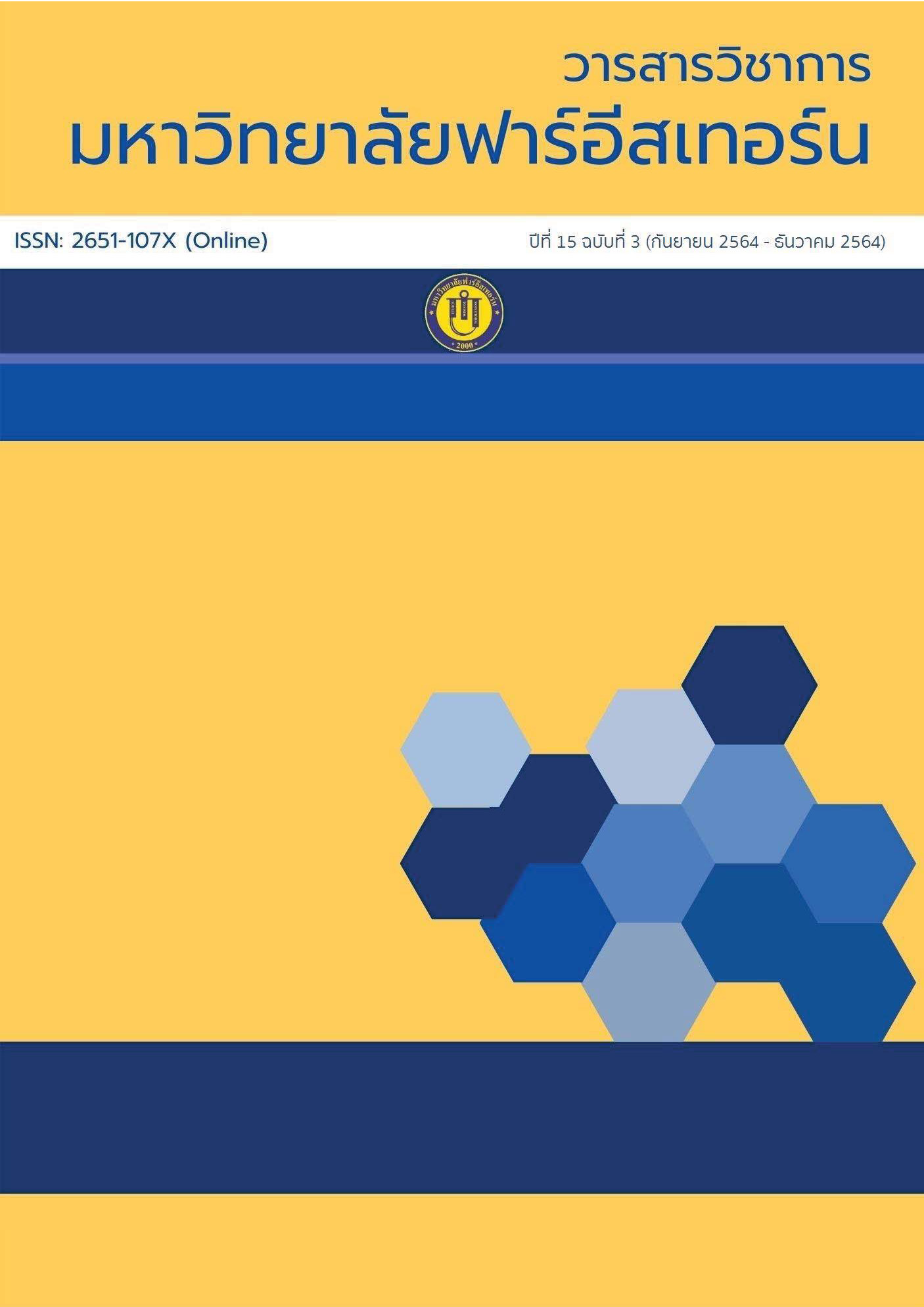Adaptive Strategies for Survival during the Coronavirus Pandemic of Tourism Industry and Recreation Entrepreneurs in Chiang Mai Province
Main Article Content
Abstract
This research aimed to study adaptive strategies of a tourism and recreation entrepreneur, affected by a decline in customers and not being able to make income in a way as usual, in Chiang Mai. The data collected from in-depth interviews was used to conduct a convenience sampling method by selecting businesses in 5 business categories, which has been found for over 5 years with identification in online databases, that were able to run the business after 1st and 2nd waves of COVID-19. Besides, accidental sampling method, applied by gathering data from 5 business categories that were available to provide information in a total 16. The results found that the management strategies to survive in the pandemic can be divided into 4 major aspects as follows; (1) For management strategies, it was found that businesses made a situational assessment, explored business resources, prepared a budget plan, and attempted to maintain cashflow in the business to be sufficient in any operation. (2) For sales and marketing, It was found that a business tried to make income in a different way through online channel and also found the new business model adjustment to gain more revenue and cope with human resources worthwhile. (3)For capital and liabilities management, it was found that businesses tried to maintain cashflow so that the business can run with working capital as much as possible, and also reduced expenses by bargaining with all sectors as well as maintaining trade credit and reliability of the business appropriately. (4) For problem-solving and risk management during the crisis, it was found that the business started to adapt to gain income from the different channels for survival. For staff, compensation, food welfare, shortening of working hours instead of substituting for a lay-off, and area and utilities support to be able to make extra income during the crisis.
Article Details
1. Any views and comments in the Journal of Social Innovation and Lifelong Learning are the authors’ views. The editorial staff have not to agree with those views and it is not considered as the editorial’s responsibility.
2. The responsibility of content and draft check of each article belongs to each author. In case, there is any lawsuit about copyright infringement. It is considered as the authors’ sole responsibility.
3. The article copyright belonging to the authors and The Far Eastern University are copyrighted legally. Republication must be received direct permission from the authors and The Far Eastern University in written form.
References
Amornpinyo, N. (2013). A Sustainable Success Model of Micro Entrepreneur in Upper Northeast, Thailand. Udon Thani: Udon Thani Rajabhat University. [In Thai]
Bangkokbiznews. (2021). Chiang Mai Province Expect the Coronavirus Disease Epidemic Situation Administration Center 2019 to approve the opening of the city to welcome foreign tourists. Retrieved October 26, 2021, from https://www.bangkokbiznews.com/news/957743. [In Thai]
Chiang Mai Provincial Official. (2020). Briefing Chiang Mai Province. Retrieved December 11, 2020, from http://www.chiangmai.go.th/managing/public/D8/8D22Oct2020145452.pdf. [In Thai]
Chitkesorn, A. (2012). Small Business Management and Entrepreneurship. Chiang Mai: Saraphi printing. [In Thai]
Esichaikul, R., Bangsoomboon, V. & Limsuwan, T. (2011). Tourist Destination Management. (7th Ed.). Bangkok: Sukhothai Thammathirat University Press. [In Thai]
Manprasert, S. (2020). The Impact of the COVID-19 Pandemic to the Thai Economy. Retrieved September 9, 2020, from https://www.krungsri.com/bank/th/plearn-plearn/economic-covid-impact.html. [In Thai]
Suanrattanachai, P., Pornparisa, P. & Chanjarean, I. (2021). Managing Strategies for Sustenance of Hotal Business during the Corona Virus 2019 Pandemic in Muang District, Chieng-Rai Province. FEU Academic Review, The Far Eastern University. 15(2), 17-30. [In Thai]
Tanmanatham, K. (2013). Strategy on Adaptation for Survival of Air-Conditioning Distributing Entrepreneur. Bangkok: Suan Dusit University. [In Thai]
Thavonsiri, P. & Jadesadalug, V. (2015). The Adaptation for Survival of Local Drinking-Water Enterpreneurs in Muang, Kanchanaburi Province. Veridian E-Journal, Silpakorn University. 8(2), 2171-2187. [In Thai]

